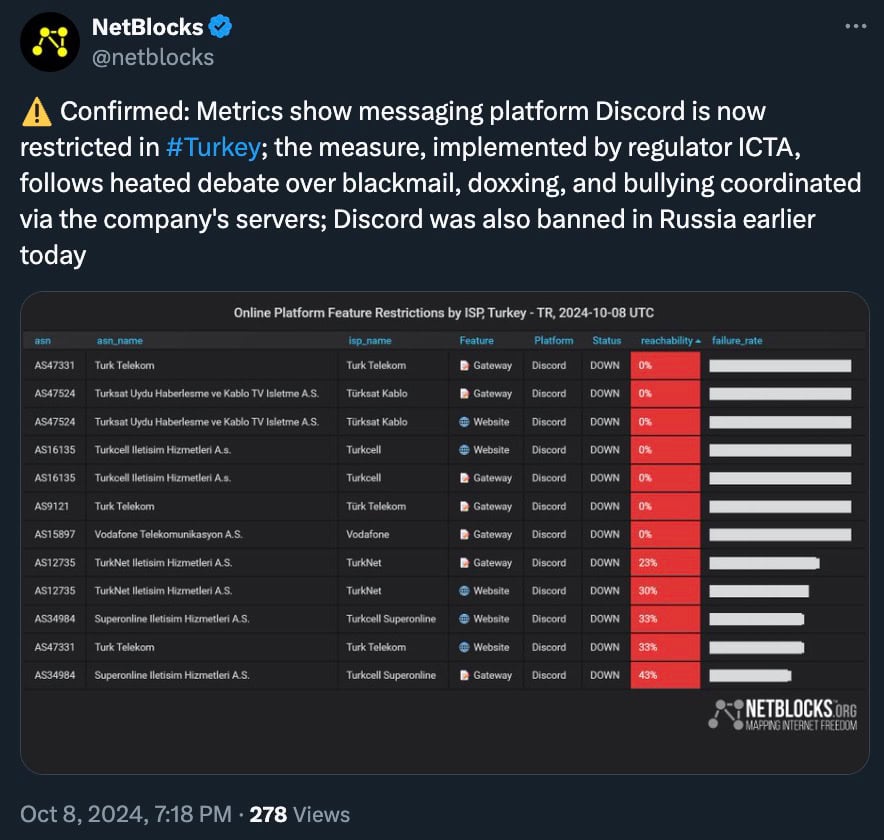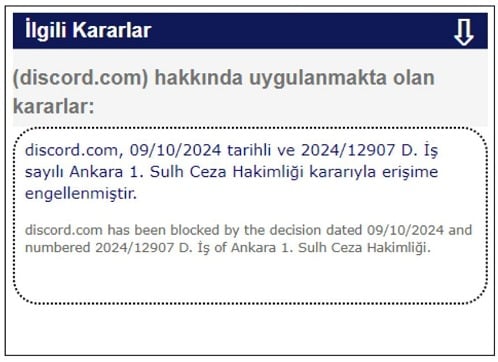Today, Russia and Turkey have banned Discord from their countries. Using the premise of “digital sovereignty,” Russian regulators have been making significant moves against the unfettered flow of information on the internet. Their latest target is Discord, a messaging platform that is popular in Russia, with an estimated 30-40 million users, contributing to about 4% of Discord’s global traffic.
For Turkey, the news follows a story whereby messages praising a 19-year-old man who murdered two women on Oct 4 were shared on other social media platforms and following concerns about grooming, blackmail, and “cyberbullying.”


This broad censorship of digital communication isn’t unprecedented in either country, with five rulings on Discord by Roskomnadzor, Russia’s state media regulator since September 20th already.
Despite the lack of specifics about what violations Discord is alleged to have committed, the threat of a ban in Russia had been looming for some time and had already risen to the point that Russian users reportedly experienced intermittent outages on Discord throughout September. In desperate attempts to maintain communications, they turned to VPNs. Both mobile and web versions of the platform have been affected.
The ban on Discord will impact gaming communities and Russia has no domestic alternative.
Amidst this escalating tension, Discord has been fined 3.5 million roubles ($37,675) by a Moscow court for their alleged failure to restrict access to banned information.
It was only last week that the Russian regulator ordered Discord to censor nearly 1,000 posts.
This brewing conflict traces back to the continuity of “cyber sovereignty” actions triggered by the 2022 Ukraine invasion and subsequent sanctions imposed on Russia by Western countries. To circumvent the grip held by these Western tech giants, Russia has been proactively championing domestic tech platforms, resulting in controversial moves like banning VPNs.
In Turkey, the block was confirmed by Netblocks, an online online connectivity observatory.










